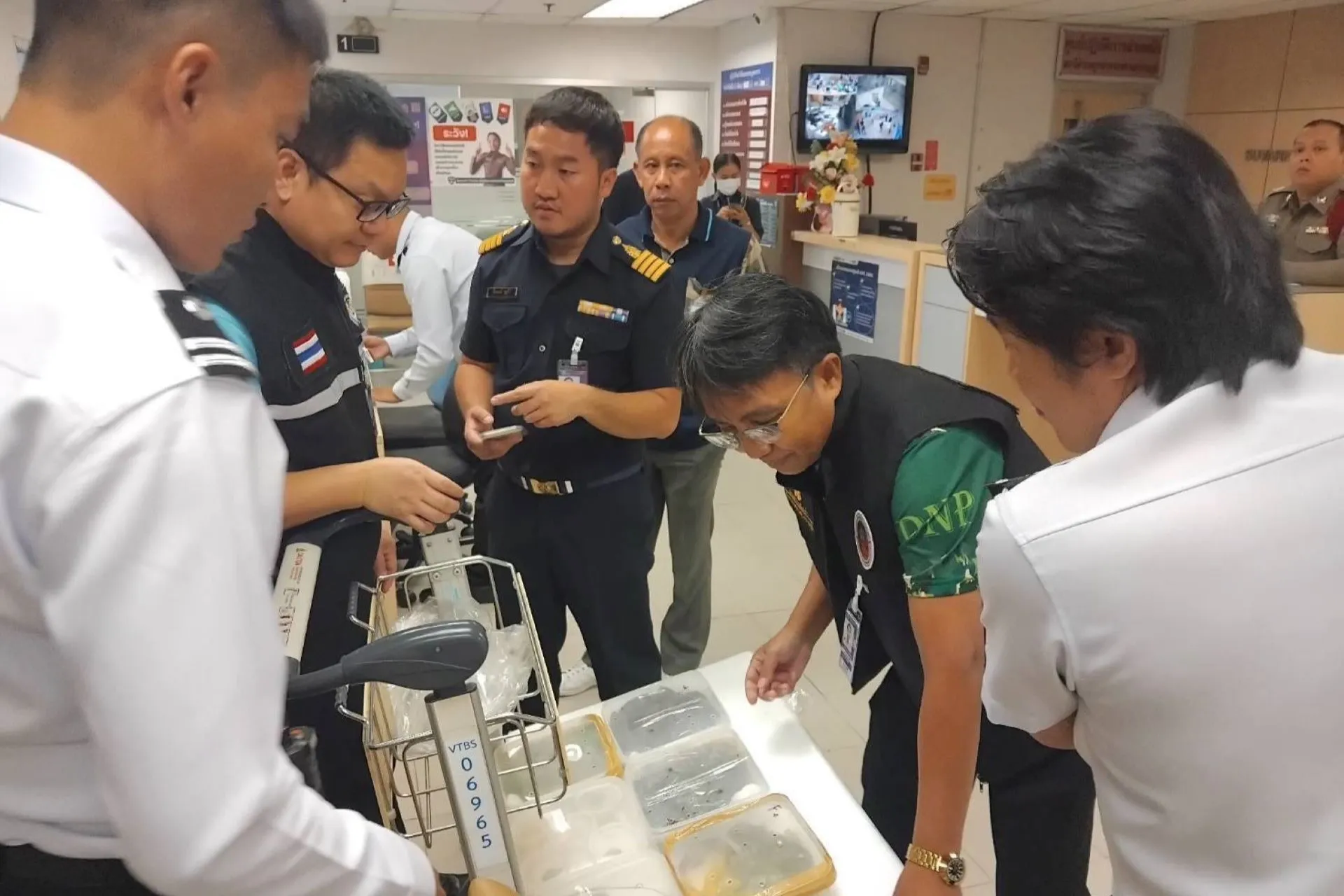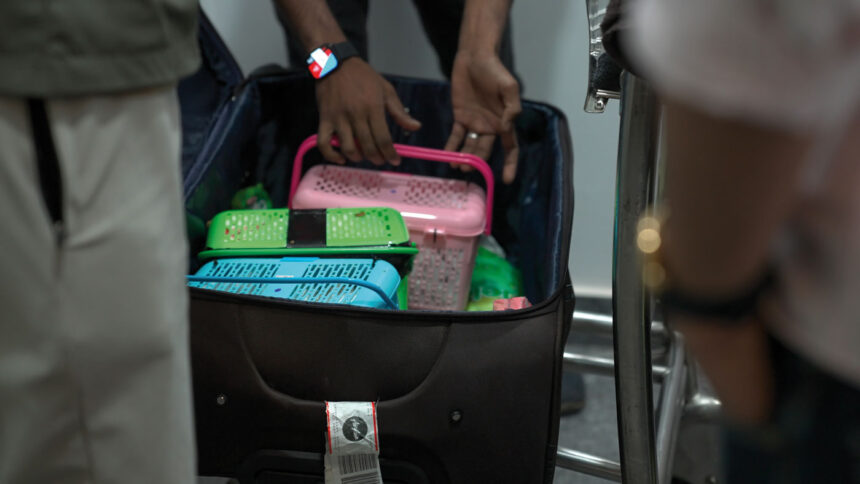MUMBAI – Customs officers at Mumbai’s Chhatrapati Shivaji Maharaj International Airport (CSMIA) arrested an Indian man after they discovered 52 rare reptiles from Thailand hidden in his luggage.
The man, who arrived from Bangkok on Thai Airways flight TG317, tried to sneak these animals into India from Thailand. His name has not been released. This arrest again highlights the ongoing problem of wildlife smuggling and the growing efforts by airport officials to stop it.
Customs staff, acting on a tip and noticing the passenger’s unusual behaviour, inspected his bags. Inside, they found 52 live reptiles, including three Spider-Tailed Horned Vipers, five Asian Leaf Turtles, and 44 Indonesian Pit Vipers. One of the pit vipers was already dead.
The reptiles were packed in a way meant to hide them from checks, but also put their health at risk.
Animal specialists were called in to care for the surviving reptiles, most of which are now being monitored. Both the Spider-Tailed Horned Viper and Asian Leaf Turtle are listed in Appendix II of CITES and Schedule IV of India’s Wildlife (Protection) Act, 1972.
Smuggling these species is a serious crime. Even though Indonesian Pit Vipers are not on the CITES list, the man did not have the paperwork needed for legal import.
The man now faces tough charges under Indian law. Smuggling protected animals breaks the Wildlife (Protection) Act, 1972, and could lead to up to seven years in prison along with hefty fines.
Customs authorities have also charged him under the Customs Act, 1962, for breaking import laws. Investigators are checking if he has links to organized smuggling rings, which could bring more charges.
The animals are now with wildlife officials and will be sent back to Thailand, following India’s rules about returning trafficked wildlife.

Thailand: A Hotspot for Wildlife Smuggling
Thailand’s rich wildlife and central position make it a common starting point for smuggling. Airports like Bangkok’s Suvarnabhumi are often used by smugglers moving rare animals to India, China, and Vietnam.
The global trade in wild animals is worth billions each year and is one of the world’s biggest illegal markets, just behind drugs, fake goods, and human trafficking.
Thailand fights wildlife smuggling under several laws, including the Wildlife Preservation and Protection Act, the Customs Act, and the Animal Epidemic Act. Recent cases at Suvarnabhumi Airport show the country’s ongoing battle.
On May 26, 2025, authorities stopped an Indian traveller with 20 blue iguanas and two sulcata tortoises headed to Bengaluru. The next day, a Sri Lankan man was caught with rare birds and small mammals bound for Colombo. Thailand’s Department of National Parks, Wildlife, and Plant Conservation is working closely with customs and police to tighten checks.
Both countries have increased efforts to stop wildlife traffickers. In India, airports in Mumbai, Chennai, and Bengaluru are now key spots for action, with special wildlife teams set up to deal with these crimes. About 31% of cases in India involve animals found in checked suitcases, often rare reptiles or primates. The Wildlife Crime Control Bureau has started sharing information with other countries to track down smugglers.

Urgent Need for Global Action
Thailand’s government is also cracking down. With help from UK agencies, Operation Chaophraya targets smuggling networks, especially for drugs, but similar methods now focus on wildlife. Security teams in both countries use tighter baggage screening and share details to spot suspects. In March 2025, India discussed concerns with Malaysia and Thailand about weak exit controls, which may soon lead to better checks and faster returns of rescued animals.
Mumbai’s airport has seen several smuggling cases linked to Thailand. In February 2025, customs seized five rare Siamang gibbons hidden in a crate. In November 2024, two men were caught with 12 turtles mixed in with snacks. The month before, officials stopped four hornbills, and in September, they seized five young caimans, all on Bangkok flights. This shows Mumbai’s position as a main entry and transit point for animal smugglers.
Chennai International Airport also reports regular seizures. In 2024, officials found 22 rare species, including a Siamang Gibbon and pythons, from Thailand. In 2019, a man tried to bring in a leopard cub. These repeated cases have led to better airport checks and extra staff training.
This latest arrest in Mumbai shines a light on the bigger crisis of illegal wildlife trade. The smuggling of rare species not only threatens animals with extinction, but also puts public health and the environment at risk.
With demand for exotic pets on the rise, stronger international cooperation is needed. India and Thailand are making progress, but gaps in enforcement still exist. Better baggage checks, tougher penalties, and raising public awareness are all key steps to reduce this illegal trade. For now, the rescued reptiles are being cared for by experts, while the suspect awaits trial in a case that has caught the world’s attention.
Related News:
Chiang Rai Wildlife Officials Seize Poached Animal Carcasses














